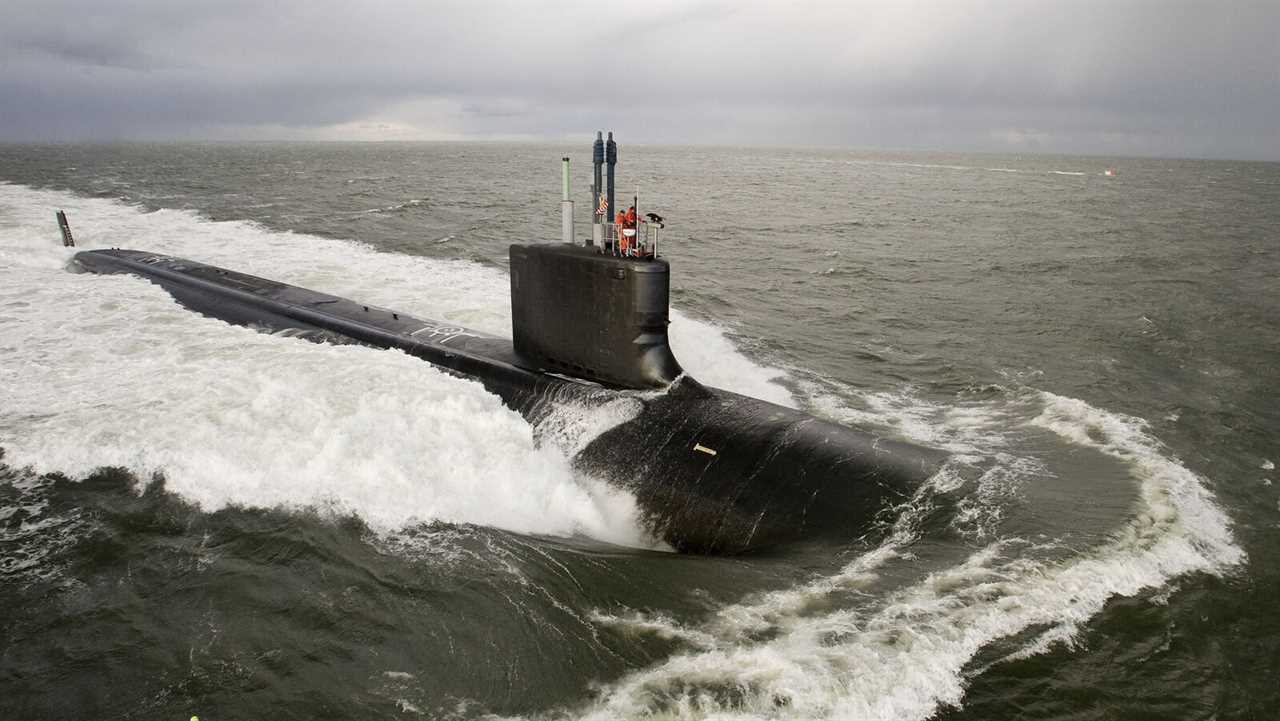
In 2010, after Jonathan and Diana Toebbe lost their house in suburban Denver in the wake of the recession, Mr. Toebbe began repeatedly telling friends he needed to “provide for his family.”A talented graduate student with a Ph.D. project that would have taken him to a career working with America’s arsenal of nuclear bombs, Mr. Toebbe switched his focus to work related to nuclear submarine propulsion, then abandoned his doctoral studies to join the Navy. It was, a friend said, a decision based on the need to make more money quickly.Eight years later, as a high school teacher in Annapolis, Md., Ms. Toebbe spent an entire advisory period helping a student work on a paper. When the bell rang and the student apologized for taking up so much time, Ms. Toebbe mentioned her love of teaching and, as she often did, her Ph.D.Then, with a certain bitterness creeping into her tone, she said, “I’m not doing this for the money.”For the last decade, the Toebbes, according to friends, colleagues, students and public documents, have faced an array of stresses: worries about money, anxieties over raising two children, a feeling of being undervalued, anger about American politics.Then, starting last year, prosecutors say, the Toebbes took a fateful step: They tried to sell some of America’s most closely guarded nuclear submarine secrets to a foreign power for an initial payment of $100,000 in cryptocurrency, leading to their arrest this month on espionage charges.The government has yet to say what it believes motivated the Toebbes, though investigators think money may have been a major factor, according to people briefed on the case. Interviews with current and former friends and colleagues do not suggest any singular reason.The Toebbes had lately seemed to be far more financially stable than they had been a decade ago, earning somewhere in the vicinity of $200,000 a year between them and living in their own home in a middle-class neighborhood in Annapolis.On Tuesday, a grand jury in Elkins, W.Va., indicted the couple on one count of conspiracy to communicate restricted data and two counts of communication of restricted data. They are scheduled to appear on Wednesday in a West Virginia federal court, to be arraigned on the charges and where they will have an opportunity to challenge the government’s request to have them held without bail.None of the Toebbes’ friends or colleagues say they thought the couple would one day be accused of betraying their country. Yet many talked about critical moments in the lives of Jon, 42, and Diana, 45, when they were disappointed by careers, family and their country. ImageAt federal court in Martinsburg, W.Va., on Wednesday, the Toebbes will have a chance to challenge the government’s request that they continue to be held without bail.Credit...Jose Luis Magana/Associated PressThis article is based on nearly two dozen interviews with people who knew the Toebbes. Most would not agree to be quoted, citing the classified nature of Mr. Toebbe’s work, the ongoing criminal investigation or requests from Ms. Toebbe’s employer, the Key School, not to speak to journalists.Investigators from the Naval Criminal Investigative Service are still examining how Mr. Toebbe, who continued to work for the Navy as a civilian after leaving the active duty in 2017, could have smuggled out classified material and put it on computer memory cards — a feat that has puzzled current and former officers. A series of thefts of military secrets in recent years has tightened security: External drives and cards cannot be placed in military computers, and photocopiers and printers track who uses them, and for what purpose.Some students, parents and former colleagues said that Ms. Toebbe became overtly political in her classroom, angered by the Trump presidency and what it seemed to show about America.“It just seems so out of character,” Janet Monge, who as a curator at the University of Pennsylvania Penn Museum worked with Ms. Toebbe during her graduate research, said in an email exchange. “Not very academic and thoughtful at all.”In 2005, the couple, who had married in Georgia two years before, moved to Colorado, after Ms. Toebbe finished her Ph.D. in anthropology at Emory University. Both took jobs at the private Kent Denver School..css-1xzcza9{list-style-type:disc;padding-inline-start:1em;}.css-3btd0c{font-family:nyt-franklin,helvetica,arial,sans-serif;font-size:1rem;line-height:1.375rem;color:#333;margin-bottom:0.78125rem;}@media (min-width:740px){.css-3btd0c{font-size:1.0625rem;line-height:1.5rem;margin-bottom:0.9375rem;}}.css-3btd0c strong{font-weight:600;}.css-3btd0c em{font-style:italic;}.css-w739ur{margin:0 auto 5px;font-family:nyt-franklin,helvetica,arialBy: Julian E. Barnes and JoAnna Daemmrich
Title: Couple in Submarine Spy Case Stewed Over Money and Politics
Sourced From: www.nytimes.com/2021/10/19/us/politics/jonathan-toebbe-diana-submarine.html
Published Date: Tue, 19 Oct 2021 23:27:12 +0000
Read More
Did you miss our previous article...
https://badpoliticians.com/us-politics/house-democratic-retirements-increase-as-party-fears-losing-majority
 UK PoliticsWorld PoliticsVideosPrivacy PolicyTerms And Conditions
UK PoliticsWorld PoliticsVideosPrivacy PolicyTerms And Conditions
